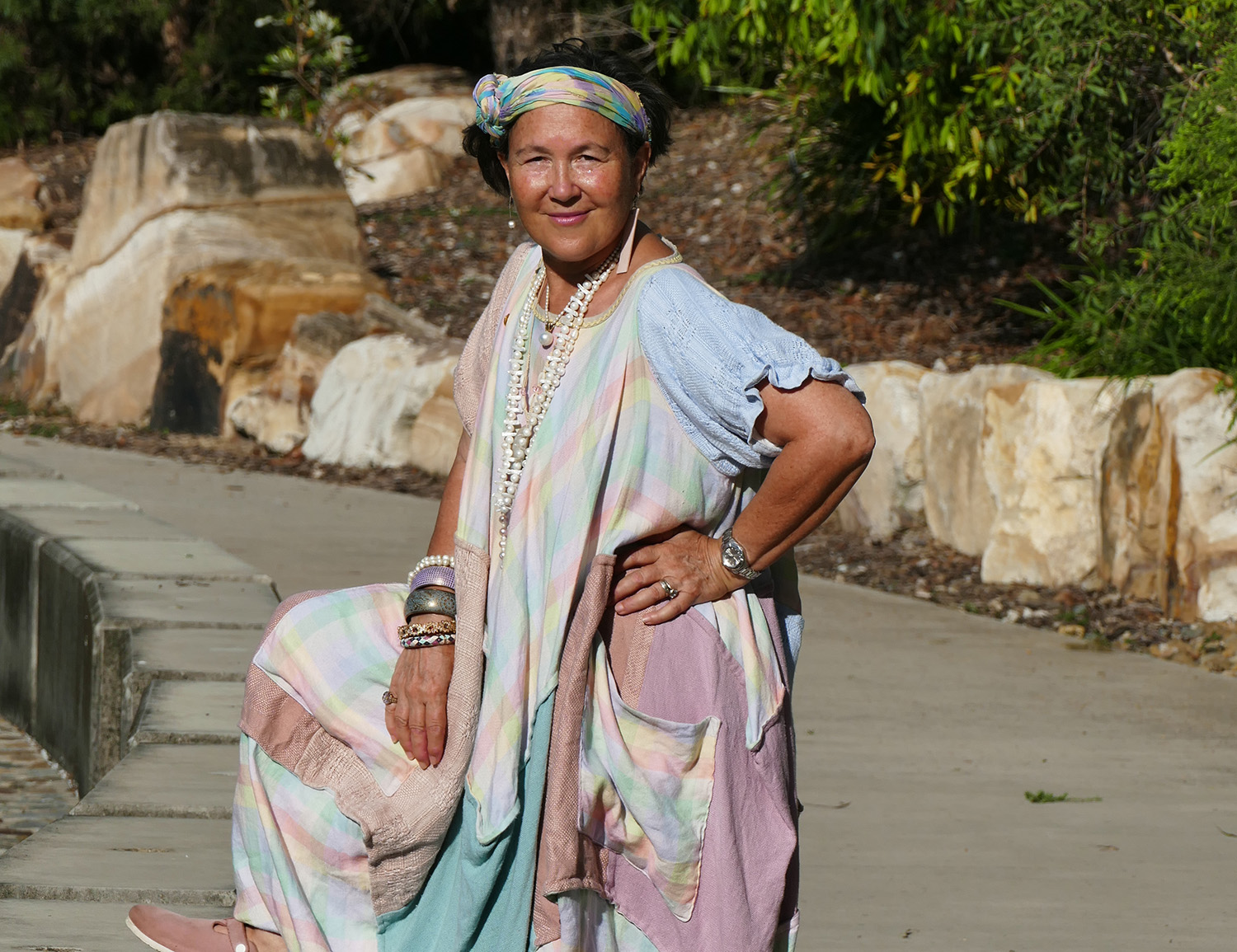Since 2012, Jane Milburn has advocated for living simply through sustainable everyday practices with a particular focus on how we choose, care for and dispose of clothing, and a decade on has been awarded a Medal of the Order of Australia for service to fashion sustainability.

Jane Milburn, OAM, recognised for slow clothing advocacy. Photo by Robin McConchie
Never in history has there been so many clothes in the world. Fast fashion means clothing consumption has risen 2 to 4 times what we need. These clothes are cheap because of global supply chains and modern-day slavery, combined with an abundance of synthetic fibres derived from fossil fuel resources. This is creating mountains of textile waste and pollution, with one-third of microplastic pollution in oceans coming from synthetic clothes.
Jane’s contribution has been raising awareness of these issues and offering everyday solutions in how we choose, care for and dispose of clothes to minimise our material footprint. “We all have agency to make a difference in the world through our choices. My Slow Clothing Manifesto identifies sustainable everyday practices: think more, choose natural, quality, local clothes, have few and care for them, make, revive, adapt and salvage the resources where you can,” Jane said.
It’s a real problem that two-thirds of clothing is made from synthetic fibres. We can’t produce more natural fibres, the solution is to consume less. The circular economy and reprocessing solutions can help, but it is important for us all to accept our individual responsibility to accumulate less so the problems don’t arise in the first place.
“As an agricultural scientist, I’m interested in where natural fibres come from and how we can use regenerative processes to reduce our impact on the planet. I was empowered by the Australian Rural Leadership Program and postgraduate leadership study to step up and speak out where I saw leadership was needed.
“For the past decade, I’ve been raising awareness about sustainability by bringing attention to issues of overconsumption, exploitation and waste. In recent times we’ve seen fast fashion, modern-day slavery and synthetic (plastic) fibres combine to create excess consumption, leading to waste and pollution as well as a loss of knowledge and skills for making and repairing clothes.
“What we choose to wear shows who we are and what we believe in. I’ve been a lifelong slow fashion practitioner, sharing the simple pleasure of tinkering with clothes to make them last longer and avoid the need to buy more. I’ve done independent research reported in my 2017 book Slow Clothing: finding meaning in what we wear, and run campaigns such as the Sew it Again project in 2014 and The Slow Clothing Project in 2016, and am pleased to be part of the global Fashion Revolution movement. In 2019, I was awarded a Churchill Fellowship which I hope to be able to complete in 2022 now that international travel is again possible.”
Jane’s work is a call to action. She is inspiring social change by demonstrating we are all accountable and can make a difference by living simply, reducing waste and reconnecting with nature.
“As we confront dangerous climate-change, we need to be taking regenerative actions in all aspects of our lives. We need to support local natural-fibre systems and the re-emerging maker culture, and reskill ourselves so we can creatively reuse and revive our things – including our clothes.”
“I’m honoured by this recognition for my contribution, and grateful to those who encourage and support this work towards living simply and sustainably for the betterment of planetary health.”